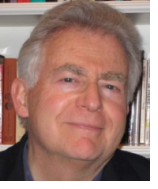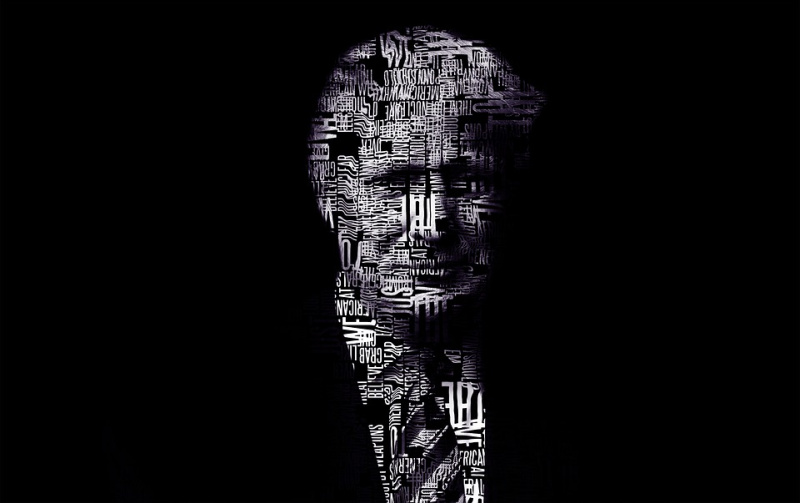Prof. Louis René Beres
“The university is the temple of intellect, and I am its high priest.”- Miguel de Unamuno, speaking against irrationalism as rector of the University of Salamanca (Spain), 12 October 1936
From the start of his White House tenure, Donald Trump’s real targets were never specific individuals or institutions. Rather, they were ideas, assorted notions of intellectual effort and ethical conduct that made him feel uncomfortable. If this clarification should sound bewildering, the former president’s objections to any dignified life of the mind were basically unhidden. Inter alia, these strenuous objections were conspicuous, injurious and patently inglorious. When Trump first declared incoherently, “I love the poorly educated,” he was merely repeating the squalid mantra of an earlier “truth social.”
Will you offer us a hand? Every gift, regardless of size, fuels our future.
Your critical contribution enables us to maintain our independence from shareholders or wealthy owners, allowing us to keep up reporting without bias. It means we can continue to make Jewish Business News available to everyone.
You can support us for as little as $1 via PayPal at office@jewishbusinessnews.com.
Thank you.
In mid-1930s Germany, lest we forget, Third Reich propaganda chief Joseph Goebbels sneered vacantly and with impunity: “Intellect rots the brain.”
On these still-urgent matters, ancient myth can help us understand. The Roman god Janus stares backward and forward at the same time. Looking systematically at historical evidence and certain persuasive analogues, it follows that intellect deserves some visible pride of place.
Here, pertinent concepts and details relate to “Trump University.” The most important aspect of a university, any university, is its underlying and defining “idea.” Recalling Plato’s doctrine of “Forms,” it is this classical meaning of idea that 20th century Spanish (Basque) philosopher Miguel de Unamuno famously held to be “sacred.”
There is more. At a time when thinking Americans needed credible reassurance that their struggle against superstition and anti-reason would expect intellectual support from the country’s universities, Mr. Trump could envision only one more crass opportunity for self-centered aggrandizement and personal profit.
Even now, even after a defeated Trump has been convincingly associated with a long litany of serious crimes – the latest being his “mishandling” of highly classified national security documents at Mar-a-Lago – this former president’s most fundamental infractions remain “conceptual.” In essence, wherever one looks today, the discernible particulars of Donald Trump’s addiction to malfeasance include an indifference to science, erudition, empathy and critical thought. Unsurprisingly, for Trump, the contrived association of his own name with that of a “university” represented just one more excursion into commerce.
It was a crude and devious excursion.
Eagerly, for this former president, hyperbole and simplification were embraced as congenial substitutes for difficult (dialectical) thinking. All too often, and by every reasonable standard, Trump’s disjointed stream-of-conscious observations were limited to monosyllabic grunts or to visceral spasms of gibberish. On multiple occasions, Americans were instructed by Trump that “Barbed wire can be very beautiful.” Similarly, Trump’s recurrent comment about his border wall was especially incoherent in one strange nuance: “It will,” we learned, “have a beautiful door.” And this from a world leader who previously declared: (1) nuclear weapons should be used against hurricanes; (2) “the Moon is part of Mars;” and (3) ingesting household bleach could represent the best way to deal with Covid19.
Donald Trump was effectively addicted to rancor, belligerence and acrimony; that is, to the “sworn enemies” of intellect, dialectic and reason.For him, with nary an exception, ad hominem attacks expressed the optimal way to ward off any foreseeable challenges of intellectual complexity. Related observations, of course, may be credibly advanced about Trump’s always-favored default to barren clichés and empty witticisms.
“This is a nation of laws….” Donald Trump once managed to abstract from variously prepared scripts, but that faux reassurance never had any concrete anchorage in mind. Again and again, during his seat-of-the-pants “philosophizing,” complicated matters of national and international law were willfully disregarded. Confronted by a president whose highest ideal of legal reasoning was the argumentum ad baculum – that is, an overtly aggressive and illegitimate reliance upon personal defamations – the American people largely lost sight of any law-based national principles.
Now, in both the long and short-term, these refractory consequences (domestic and international) are continuously multiplying.
Donald Trump was no legal scholar. Still, international law remains an integral part of the law of the United States, and should be recognized as such by every American president. The critical “incorporations” are codified at Article 6 of the U.S. Constitution (the “Supremacy Clause”) and at several corresponding U.S. Supreme Court decisions (principally, the Paquete Habana, 1900). But Trump’s personal lawyers and Justice Department apparatchiks were uninterested or unaware of these vital connections. With precious few exceptions, these officials were in over their intellectual and ethical “heads.”
In fashioning US national policies, intellect should never be taken as evidence of presidential liability. Yet, as cameras panned around the audience de jour at Trump’s insistently adrenalized “rallies,” both during and after his presidency, it was hard to imagine any elevated crowd interest in logic, law or intellectual lucidity. In the fashion of other bedazzled audiences in modern history, this was never a crowd that wanted its “great leader” to be learned, law-minded or (most distasteful of all) “intellectual.”
This same observation applies to present-day Trump faithful and their collective dedication to carefully orchestrated anti-reason.
In the end, Americans ought finally to understand that Trump himself was never the underlying “pathology.” Rather, his once-unimaginable presidency was merely the most visible symptom of a grievously underlying and systemic disorder. This broader and deeper illness remains an American society that repeatedly turns its collective back on intellect. It was from this conspiracy-defiled society that Donald Trump cynically opened his “temple of intellect” or “Trump University.”
“The crowd,” observed 19th century Danish philosopher, Soren Kierkegaard, “is untruth.” Obligingly, even today, Trump’s undaunted acolytes insist upon chanting insufferable nonsense in malevolent chorus. Even for those who have had just a minimal acquaintance with modern history, the ritualistically dark tenor of such chanting should be recognizable and familiar. It’s the same palpable chanting that brought this writer (Professor Louis René Beres) and his parents to the United States from war-torn Europe following the Holocaust.
Truth is exculpatory. The intellect-defiling or mind-defiling Trump Era was not a normal or defensible American presidency. Now, Americans must inquire, audibly and no longer with trepidation or sotto voce: “Was this dissembling period in any way an excusable and perhaps repeatable American presidency?” From the standpoint of the university as a civilizing idea, the correct answer here is evident and unassailable.
Former president Donald Trump seemingly cherishes chaos in both national and international politics, an anti-intellectual affection that is impossible to reconcile with even the most rudimentary expectations of law-based authority. Generally, the Founding Fathers of the United States did not believe in democracy. Most agreed heartily with Alexander Hamilton’s trenchant observation that “the people are a great beast.” Thomas Jefferson, arguably the most democratic of the Founders, tied any residual hopes for durable governance to a proper system of citizen education. Simultaneously, in his Notes on Virginia, this future third president described “the people” as “rubbish” from which a small number of gifted individuals could be “raked” once each year.
This was not an endearing metaphor.
When early Greek tragedian Sophocles declared “despicable” any king who would place his own personal popularity ahead of national well-being, he was lamenting (in common sympathy with fellow dramatists Aeschylus and Euripides) that a corrupt political leadership must inevitably spawn a corrupt commonwealth. When King Oedipus finally discovers his own “tragic flaw,” a discovery so grotesque that he plucks out his own eyes, the Chorus recognizes variously causal connections to famine and disorder in Thebes. Much later, when a US president of crudely-pretended majesty named Donald Trump prioritized his own popularity over national well-being, American citizens were forced to face similar connections.
Many, it turns out, had learned nothing from the Greek tragedians.
But how could they have been expected to learn anything here? The Western Canon, after all, has largely been excised from university curricula.
Looking back, Trump University was less defiling than its namesake’s multiple derelictions in law, civil liberties, war avoidance and human rights.Nonetheless, this self-parodying enterprise’s open disregard for any American “life of the mind” set an egregious example of leadership irresponsibility. When considered by themselves, the direct harms created by Trump University were limited “only” to those who had somehow bought into the illusion of an American “temple of intellect.” In the end, however, this Trump-engineered scheme’s most execrable harms could prove to be more broadly-based and difficult to correct.
For Americans, all this should have been obvious from the start. Trump University, now thankfully shuttered, could never have plausibly resembled a “temple of intellect.” Ipso facto, Donald Trump could never have successfully masqueraded as its “high priest.” Still, confronting a very ineffectual life of the mind in these United States, fearfully similar public deceptions could easily rise up once again.
These “magicians” could reappear with some of the same dramatis personae.
The theatrical drama will be over.
Then it will be too late for any happy endings.
In a conceivably worst-case conclusion, it would be exeunt omnes.
Far better that Americans finally take intellect seriously and reject any further transformations of presidential politics into “magic.”
 Louis Rene Beres was educated at Princeton (Ph.D., 1971), and is Emeritus Professor of International Law at Purdue. His twelfth book, Surviving Amid Chaos: Israel’s Nuclear Strategy, was published in 2016. His other writings have been published in Harvard National Security Journal; Yale Global Online; World Politics (Princeton); Bulletin of the Atomic Scientists; Israel Defense; Parameters: Journal of the US Army War College; Special Warfare; Oxford University Press; The Jerusalem Post; Infinity Journal; BESA Perspectives; US News & World Report; The Hill; and The Atlantic.
Louis Rene Beres was educated at Princeton (Ph.D., 1971), and is Emeritus Professor of International Law at Purdue. His twelfth book, Surviving Amid Chaos: Israel’s Nuclear Strategy, was published in 2016. His other writings have been published in Harvard National Security Journal; Yale Global Online; World Politics (Princeton); Bulletin of the Atomic Scientists; Israel Defense; Parameters: Journal of the US Army War College; Special Warfare; Oxford University Press; The Jerusalem Post; Infinity Journal; BESA Perspectives; US News & World Report; The Hill; and The Atlantic.
This article was first published in Modern Diplomacy




